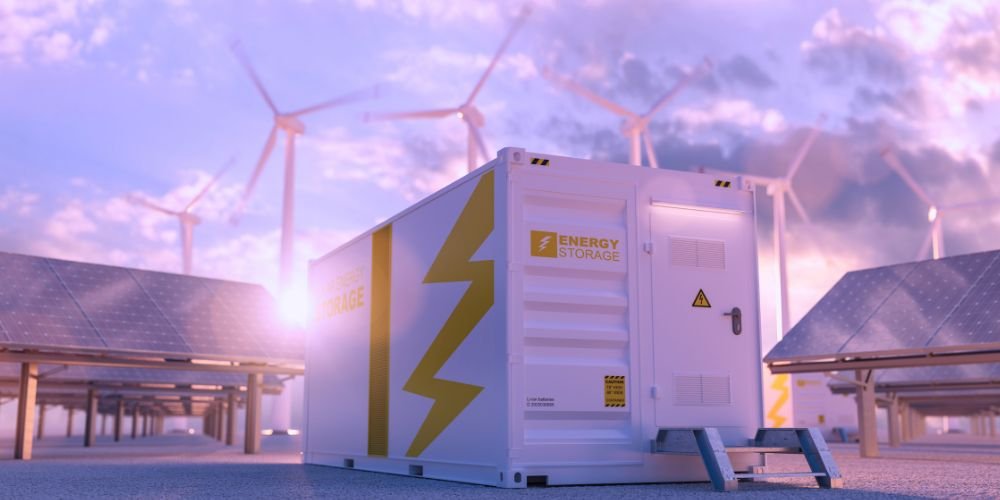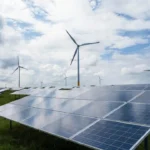Industrial energy management has emerged as a critical strategy for optimizing energy consumption, reducing costs, and enhancing sustainability in the manufacturing sector. This comprehensive exploration delves into the intricacies of industrial energy management, unraveling its fundamental principles, key components, recent innovations, notable applications, and transformative impact on reshaping the landscape of industrial production and environmental stewardship.
Understanding Industrial Energy Management
Industrial energy management involves systematically planning, monitoring, and optimizing energy usage within manufacturing facilities. The primary goal is to improve energy efficiency, reduce waste, and enhance overall operational performance. This approach integrates advanced technologies, data analytics, and sustainable practices to create a more energy-responsible and economically viable industrial sector.
Key Components of Industrial Energy Management
The core components of industrial energy management contribute to its functionality, sustainability, and overall impact on the manufacturing process:
- Energy Audits and Monitoring Systems: Conducting regular energy audits and implementing monitoring systems to identify energy-intensive processes, inefficiencies, and areas for improvement.
- Energy-efficient Technologies and Equipment: Incorporating high-efficiency machinery, sensors, and control systems to optimize energy usage, reduce waste, and enhance production efficiency.
- Employee Training and Engagement: Providing training programs to raise awareness and educate employees about energy-efficient practices, fostering a culture of energy conservation within the organization.
Recent Innovations in Industrial Energy Management
Recent innovations have propelled industrial energy management to new heights, addressing challenges and expanding its applications. Notable advancements include the integration of Industry 4.0 technologies, the use of artificial intelligence for predictive analytics, and the implementation of smart grid solutions.
Industry 4.0 Technologies
Integrating Industry 4.0 technologies, including the Internet of Things (IoT) and cloud computing, facilitates real-time monitoring, data-driven decision-making, and predictive maintenance, contributing to improved energy efficiency in manufacturing processes.
Artificial Intelligence for Predictive Analytics
Artificial intelligence (AI) plays a crucial role in industrial energy management by analyzing large datasets to predict energy consumption patterns, identify potential inefficiencies, and recommend proactive measures for optimizing energy use.
Smart Grid Solutions
Implementing smart grid solutions enables manufacturers better to manage energy distribution, monitor grid conditions in real-time, and participate in demand response programs, contributing to overall grid stability and efficiency.
Notable Applications of Industrial Energy Management
Industrial energy management has diverse applications across various manufacturing sectors, contributing to reduced operational costs, enhanced sustainability, and improved competitiveness.
Energy-efficient Manufacturing Processes
Optimizing manufacturing processes by implementing energy-efficient technologies and practices, such as lean manufacturing principles and high-efficiency equipment, contributes to cost savings and reduced environmental impact.
Demand Response Participation
Engaging in demand response programs allows industrial facilities to adjust their energy consumption in response to real-time grid conditions, contributing to grid stability and earning incentives for participating in load management.
Challenges in Industrial Energy Management
Despite significant advancements, It faces challenges that impact its widespread adoption and effectiveness. Addressing these challenges is crucial for the continued growth and integration of sustainable practices in the manufacturing sector.
Initial Capital Investment
Some manufacturers may be intimidated by the upfront costs associated with upgrading equipment, implementing new technologies, and conducting energy audits. However, the long-term benefits, such as reduced operational costs and improved sustainability, often outweigh these initial investments.
Integration with Existing Systems
Integrating industrial energy management solutions with existing manufacturing systems, such as enterprise resource planning (ERP) and process control systems, can pose challenges. Seamless integration is vital for maximizing the effectiveness of energy management solutions.
Future Trends in Industrial Energy Management
The trajectory of industrial energy management indicates exciting trends that will further redefine its capabilities and applications. These trends promise to enhance efficiency, promote sustainability, and contribute to the overall resilience of industrial production.
Decentralized Energy Systems
The rise of decentralized energy systems, facilitated by distributed generation and microgrids, is expected to play a pivotal role in industrial energy management by creating more localized and resilient energy networks.
Integration of Circular Economy Practices
The integration of circular economy practices within industrial processes, including product design for reuse and recycling, aims to reduce waste and extend the lifecycle of materials, contributing to more sustainable manufacturing.
Conclusion
Industrial energy management is pivotal in the global effort to make a more sustainable and efficient manufacturing sector. From energy audits and high-efficiency equipment to integrating Industry 4.0 technologies and participation in demand response programs, the impact of these advancements extends across diverse manufacturing processes. Despite challenges, ongoing innovations in AI, smart grid solutions, and sustainable practices signal a promising future for industrial energy management. As research and development push the boundaries of what is possible, it is poised to play a central role in shaping a cleaner, more efficient, and technologically advanced future for industrial production.





